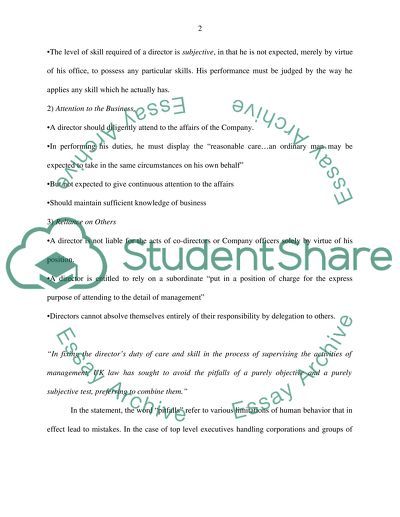Cite this document
(“Company Director's Duty of Care Essay Example | Topics and Well Written Essays - 2000 words”, n.d.)
Company Director's Duty of Care Essay Example | Topics and Well Written Essays - 2000 words. Retrieved from https://studentshare.org/law/1524475-company-directors-duty-of-care
Company Director's Duty of Care Essay Example | Topics and Well Written Essays - 2000 words. Retrieved from https://studentshare.org/law/1524475-company-directors-duty-of-care
(Company Director'S Duty of Care Essay Example | Topics and Well Written Essays - 2000 Words)
Company Director'S Duty of Care Essay Example | Topics and Well Written Essays - 2000 Words. https://studentshare.org/law/1524475-company-directors-duty-of-care.
Company Director'S Duty of Care Essay Example | Topics and Well Written Essays - 2000 Words. https://studentshare.org/law/1524475-company-directors-duty-of-care.
“Company Director'S Duty of Care Essay Example | Topics and Well Written Essays - 2000 Words”, n.d. https://studentshare.org/law/1524475-company-directors-duty-of-care.


